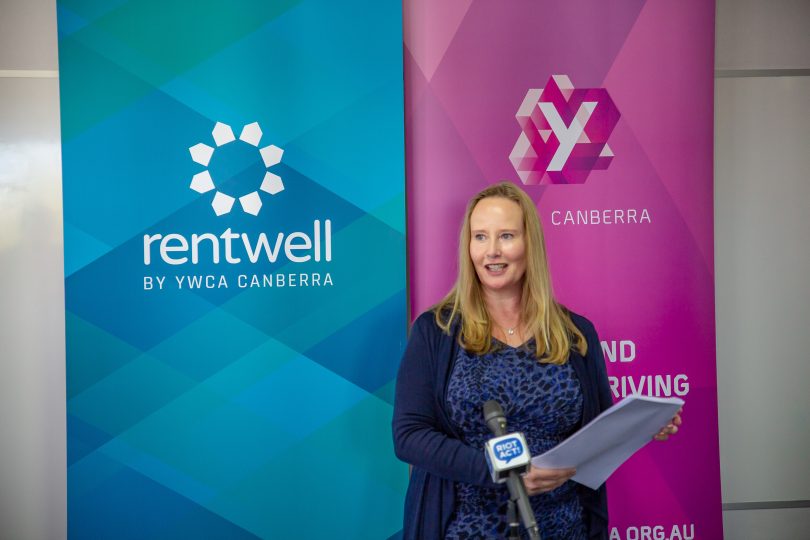
CEO of YWCA Canberra Frances Crimmins says her staff are looking out for the impacts of domestic and family violence, and elder abuse. Photo: File.
When disaster hits a city, the community sector is quick to respond. A diversity of organisations deliver services to people at risk of homelessness, violence, physical and mental health conditions, and poverty. They have a deep understanding of the ways in which a crisis will affect their clients.
For example, youth workers know which of their clients are most likely to be couch surfing. Right now, some of those young people might find that couch surfing is no longer possible and they need crisis housing.
Foodbank services will know which of their regular clients have chronic health conditions or are in an age group where they should be staying at home and may need supplies delivered instead of coming in to pick them up.
Housing and food have been two key areas where the community sector and ACT Government have directed funding and effort, such as setting up the Canberra Relief Network to ensure those most at risk are able to access food, and incentives for landlords to reduce residential rents.
There are many other vital services delivered by community sector organisations that have changed as a result of the coronavirus pandemic.
CEO of YWCA Canberra Frances Crimmins said her staff are looking out for the impacts of domestic and family violence, and elder abuse, among their clients. She is also concerned about a new wave of women sleeping in cars as couch surfing becomes impossible with physical distancing. Job losses in hospitality, retail and the arts will make it harder to pay rent.
Support to women (many of them older women) in housing programs continues, but is done by phone where possible.
“We haven’t cut out face-to-face visits entirely, because you just can’t. Outreach still has to occur,” Ms Crimmins said.
“For some clients, we’ll just do wellbeing checks and calls if they’re clients we’ve been working with for longer. But for new clients who are on the waitlist for housing, at some point we have to meet with them, we have to organise furniture and deliver essential goods to them.”
There are some women in the housing program who need to be moved into temporary hotel accommodation to enable isolation that isn’t possible in a group home environment. This has been organised by working with OneLink.
“Our group homes tend to range from 50 to 92 years old. And there’s significant health conditions among those people, because if you’ve experienced domestic violence and homelessness it impacts on your health,” Ms Crimmins said.
YWCA’s Rentwell program may offer a solution to investment property owners impacted by the collapse of Canberra’s AirBnB market. The program enables landlords to receive a land tax exemption from ACT Government in return for renting the property below 75 per cent of market rate, with YWCA Canberra managing the property and ensuring rent is paid.
YWCA also continues to run their Clubhouse and youth outreach activities, but have shifted them online.
Ms Crimmins noted that the Education Directorate is working on data access for students who don’t have internet access at home. Counselling services are now being delivered by phone and videoconference, using Australian-based data centres that comply with privacy requirements.
All of these changes to the way services are delivered, and additional time required to deliver food to clients or meet increased demand for services, means extra cost for organisations reliant on ACT and Commonwealth grant funding.
ACTCOSS has been advocating for the sector with the ACT Government, highlighting areas of need in the community, and the kind of support the sector will need to meet the needs of their clients.
Canberra’s community sector is committed to supporting their clients through a difficult period that will last much longer than the current physical distancing requirements.
Visit YWCA Canberra to learn more about its services, or how you can support their essential community work.
Learn more about the Canberra Relief Network at Hands Across Canberra.















